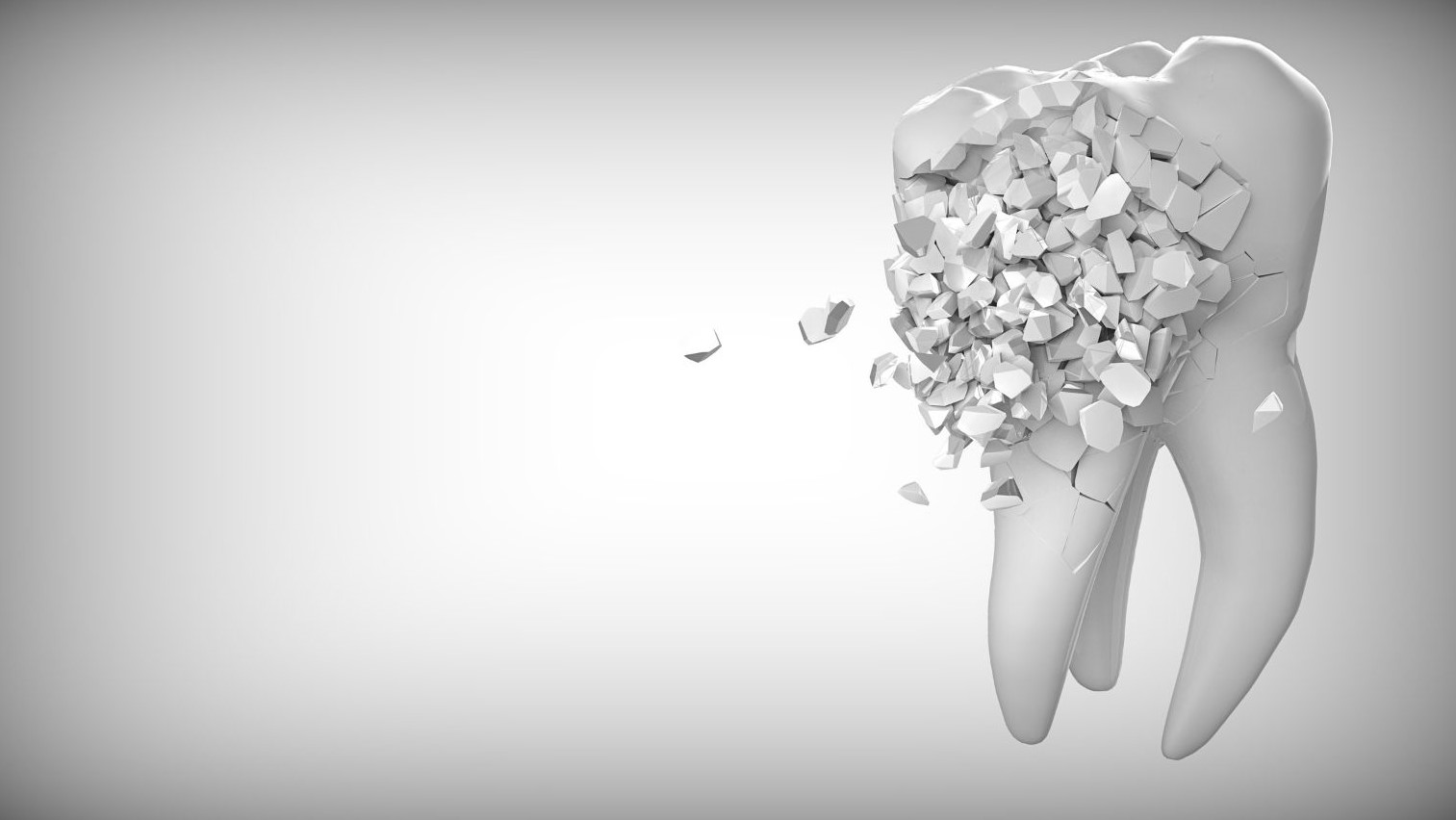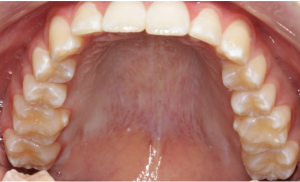We need to talk about dry mouth or as we call it in the profession: xerostomia. Not a day goes by I don’t have a patient or two that is affected by it. If you have it, you know how very uncomfortable it is, and are desperately seeking relief and solutions.

For those with severe dryness, it means life is uncomfortable. Without that elixir of life- saliva-things in the mouth fall apart rapidly. Burning mouth, bad breath, tooth decay, and gum disease rear their ugly head. It leads to a round-robin of dental treatment and continuous repair. Dental appliances don’t fit well. Sleeping and speaking become problematic. Lips crack. Fungal infections occur. Eating dry foods is almost impossible. Mouth sores and oral lesions become common. For some, a lack of saliva makes life unbearable.
Those living with dry mouth have tried all the usual commercial products only to find they last for minutes and don’t provide the relief they seek. Can we do better? Let’s see if I can help you find some answers and some products that will help you get saliva flowing again.
The King of the Mouth – Saliva
First, let’s review saliva- the true healer and ruler of the mouth.

Saliva is critical to a healthy, disease-free, and comfortable mouth.
It is 99% water, with the remaining 1% holding the magic we need for a healthy mouth. This one percent is filled with enzymes, ions, electrolytes and mucus, as well as macroproteins.

Saliva has many jobs. It lubricates food and tissues, dilutes and clears sugars, protects tissues, clears dietary acids through swallowing, neutralizes and buffers acids, and balances the demineralization-remineralization process of teeth. It starts the digestive process, and helps stabilize, protect, and transport critical nutrients so they can be absorbed in the GI tract. It aids in speech and is an important part of your immune system. Without saliva, food loses its taste.
It provides antibodies to promote a diverse group of microbes. Your microbiome is a group of bacteria, viruses and other microbes that live in your mouth, under your gums, in your tongue folds, and even in your tonsillar crypts. When the mouth becomes “dry”, the environment of the mouth changes. The mouth becomes more acidic, and this pH change allows the “bad” bacteria and other microbes to flourish and grow, taking over the oral microbiome, and crowding out the “good” bugs. Saliva plays a critical role in keeping these microbes in check.
Salivary Glands

There are three main pairs of salivary glands in the mouth. Each produces different types of saliva.
The parotid glands, located in the cheeks are the largest. They produce serous saliva only. This is a more watery fluid and rich in enzymes.
The submandibular gland, located beneath the floor of the mouth produces mainly mucous saliva, a much more thick and slimy saliva. This gland produces about 65% of the daily saliva flow. This is the gland that may gleek if you yawn or laugh out loud. (Cutesy anecdote: Long ago, while in grad school, I managed to sit next to the cutest boy in class. I was tired and yawned. Before I could cover my mouth, I “gleeked” right over the desk. It was an impressive arc. Not my most graceful moment. Needless to say, after the break, I found a different seat and never did talk to him…)
The sublingual gland, the smallest, produces about 5% of daily saliva and is located just underneath the floor of the mouth. It makes both serous and thick mucous saliva.
There are hundreds of minor salivary glands throughout the mouth.
A healthy person produces 600 mL of saliva a day which is about 2.5 cups. You produce almost no saliva at night.
Saliva Components

Saliva contains important enzymes and minerals to keep the oral mucosal tissues and teeth strong and healthy. These enzymes help provide nutrients your body needs.
Food or even the thought of food stimulates our salivary glands to function. Digestion starts the moment we put food in our mouth. Salivary amylase breaks down starches to sugar, which helps keep starches from accumulating on teeth. Lingual lipase breaks down fats into fatty acids, important for helping infants with immature stomachs break down milk fats for easier digestion. It is excreted into the mouth near the very back of the tongue by those round bumps called circumvallate papilla (which are taste buds). It plays a key role in digestion.
Another important enzyme is Lysozyme. It is part of our protection and defense system. It has antibacterial, antiviral,and antifungal actions on the pathogens. It punches holes in the cell wall of these pathogens which releases the contents, effectively killing them. (It works on viruses in a similar way.) We also make our own hydrogen peroxide which is another antimicrobial agent.
Saliva also contains the critical building blocks of teeth- calcium and phosphorous. More on this shortly.
Saliva keeps the mouth healthy. Without it, things start falling apart. And this is where dry mouth rears its ugly head.
Dry Mouth

Enamel is the hardest surface in the body. This is due to the building blocks of teeth: calcium and phosphorous. This form of dental calcium and phosphate is called “Hydroxyapatite” and makes up 97% of the enamel structure with these hard crystallite bundles. (You may have heard of nanohydroxyapatite toothpastes being the new best toothpaste. Now you know why we in dentistry are so excited about it. It mimics natural tooth structure.)
Saliva’s other job is to remineralize tooth structure. All the yummy acidic foods we eat demineralize and remove calcium and phosphate from our teeth. Luckily, saliva can flood these areas, raise the pH of the mouth back to a healthy 6.8 to 7.2, and put the minerals back into the teeth. It is a constant ebb and flow of minerals in, minerals out. So, when there is a lack of salivary flow, there is too much ebbing and no flowing. Teeth and the rest of the mouth start to suffer.
Saliva rules! No saliva flow affects not only the mouth but the entire body.
Symptoms of Dry Mouth
You may be familiar with the usual sysmptoms of dry mouth- waking up with the tongue sticking to the roof of the mouth, trouble speaking, swallowing, eating dry food, needing water to swallow food or drinking water at night. Here a some other symptoms you may not connect to dry mouth:
- Inside of the nose feels dry
- Eyes feel dry
- Burning mouth/tongue
- Itchy tongue or gums
- Raw or furrowed tongue
- Candida infection, especially in the corners of the lips
- Bad breath
- Thick or stringy saliva
- Impaired denture retention
- Intolerance to spicy or acidic foods
- Stomatodynia (pain in the mouth)
- Foamy saliva
Causes of Dry Mouth
The number one cause of dry mouth is medication. That’s a side effect of over 400 medications so if you take two or more prescription meds, chances are really good that one of them is going to affect the quantity and quality of your saliva.
Short term drugs: allergy medications, antihistamines, or other cold medications will dry things out too.
Smoking- nicotine as well as vaping, and cannabis (and anything else you might smoke) all dry out the mouth, cooking the tissues.
Dehydration- drink more water. It matters.
Mouth breathing- close your mouth and use your nose. That’s what it’s there for. The mouth is made for eating. If you mouth breathe at night, consider mouth tape to ensure your lips are closed ALL night. Mouth breathing is dysfunctional breathing. Please see a myofunctional therapist and learn how to breathe correctly.

Anxiety- your nervous system is the trigger for salivary flow. Being anxious or “down” will reduce the flow.
Seasons and temperature: saliva flow is lower in summer and when temperatures are high.
Radiation and chemo therapy especially in the head and neck region damage the salivary glands, reducing or stopping flow.
Aging – most seniors take numerous medications so that could be the cause. But, as we age, nothing works as well as when we were younger.
Salivary gland pathology – mucoceles, salivary obstructions, acute and chronic parotitis as well as other oral diseases affect the salivary gland function.
Systemic diseases- Parkinson’s, Lupus, Mumps, Alzheimer’s, Diabetes, scleroderma, and sarcoidosis, Sjogren’s syndrome and more all have an impact on how the glands function and can affect salivary output. (The medications these diseases require can also affect flow.)
Defeating Dry Mouth

Enough of the medical talk. If you have dry mouth what you really want to know is:
WHAT DO YOU DO ABOUT IT TO STIMULATE YOUR GLANDS AND GET BACK TO A NORMAL LIFE.
You already know the usual over-the-counter products give you little relief. (If they worked you wouldn’t be here.)
Here’s the best information I have to date (as I learn more I will update my list).
Let’s start with the obvious and more simple stuff first:
See your Dental Professional– It is important to rule out any oral infections such as salivary stones, infections in your glands, or a salivary tumor, as well as other systemic issues that might be contributing to your dryness.
Hydration – drink more water and more waterfilled foods like cucumbers, watermelon, smoothies, chia seeds, and apples. I recommend you look at the book Quench by Dana Cohen and Gina Bria for more information about being truly hydrated.

Nasal Breathing – use only your nose for breathing. If you are not able to nasal breathe out of both nostrils then it is time to see your medical professional. As I tell my kiddos- the nose is for breathing and the mouth is for eating. Learn how to use your nose 24/7. If you have trouble with that, please see a myofunctional therapist. If possible, mouth tape your lips together at night to ensure you stay closed while sleeping. (If you can’t breathe while taped then remove the tape and see your doctor.) You will sleep deeper and better when you do that!
Medication – Dry mouth is a side effect of so many medications it would be impossible to list them all here. If you think that is causing your problem, discuss this with your doctor and see if there might be other solutions. Don’t stop taking your medication- talk with your doctor. Maybe by changing the time of day you take it, that might be one solution.
Humidifier – Add moisture to you bedroom air to help at night.
Prescription Medications to Stimulate Saliva – Discuss with your primary care doctor if Pilocarpine (Salagen) or Cevimeline (Evoxac) would be appropriate to try. There are side effects, as with any medications so work with your doctor to decide if this is right for you.
Intra Oral Suggestions:
There are many products that can help stimulate and encourage those glands to function better. I suggest using a mix of these products- layering them on each other. They may work better together than singularly.
Aquoral– This amazing artificial saliva spray coats the tissues and locks in the moisture. It works for four to six hours. It is a lipid based spray that instantly lubricates and moistens the tissues. I like it as the start of the layering process. Most artificial salivas taste less than pleasant, so to be able to tell you this taste really good is exciting for me. This is a prescription product but can be managed through their website. The spray bottles are compact and easily fit in your pocket so can travel with you to use as needed.

Next, we need to stimulate the salivary glands to pump out saliva. Salivary glands are much like muscles, and need a little coaxing and should be worked out consistently. These products should be used daily to encourage the glands to start functioning again.
MyoMunchee– a silicone oral orthotic mouthpiece that your gently chew to pump the parotid glands and stimulate salivary production. Recall, I mentioned that food and putting things in the mouth stimulate the flow of saliva. Chewing is a strong stimulator of saliva secretions.

SaliPen – this is an electrical salivary stimulator system. This small unit has a command unit with a battery and a stimulating unit that slides under your tongue. Follow the directions and use according to your needs. Do set a schedule and use on a regular basis, and not just when you feel dryness. Research shows electrical stimulation can help rehabilitate muscles and salivary glands.

Sprays, Mints and Lozenges:
We have traditionally relied on these to stimulate the glands. Some work better than others. Each person may respond differently so try them and see what works for you. And Remember, layer them. The products I list below have worked well for my patients. There are many out there. These are the ones I have found most beneficial.
Xeropicks: not technically a mint, spray or lozenge, Xeropicks are toothpicks infused with an herb called spilanthes. Spilanthese acmella is a plant that stimulates saliva.
Xylimelts: Lozenges that have a sticky side so you can safely wear these at night and gently stimulate your saliva glands. The main ingredient is xylitol. Lick it and stick to the gums – follow the directions. This company also makes a gel and a lozenge called Oracoat.
Mightea Flow lozenges and more: These product contains a green tea formula with xylitol. (It worked really well for me, BUT, I don’t have dry mouth so that might not be representative for all dry mouth sufferers.) Well worth the try.
Spry Dry Mouth Spray: This xylitol containing spray tastes great and does stimulate my patients’ saliva when I use it in-office. I get good feedback on it.
BioSal: Single use packets that contain a powder that is mixed with one ounce of water. You swish and spit. It remineralizes the teeth with calcium and phosphate, it neutralizes the mouth, raises the pH, and it also contains sodium bicarbonate, which helps kill bad bugs. It is only available on Amazon. I have many of my high-tooth decay patients use this product to remineralize their teeth.
Non-xylitol Mouth products: for those that are allergic to xylitol the selection is slim.
GC America Dry Mouth Gel: This gel comes in numerous flavors and seems to coat well and offer relief. The sweetener is ethyl p-hydroxybenzoate.
Salt Water Swishes: plain old salt water. One teaspoon to one cup warm water may be just enough to sooth those dry tissues. You could add some aloe for additional soothing effects.
Raw Honey: I know you were surprised by this addition. Raw honey is very medicinal.
Things to AVOID!
Know the pH of everything that goes in your mouth. Remember, when the pH drops below 5.5, minerals come out of your teeth. In someone with little to no saliva, even a drop from 6.8 (which is the normal range) to 6.7 can create a cavity situation in someone with low flow.
NO lemon drops, no lemon water, no mouthwash unless it is neutral pH. If in doubt, contact the company and inquire as to the pH of their products. Many products designed for dry mouth have a low pH. Low pH and acidic things certainly stimulate saliva but create a rampant decay situation.

Dry Mouth Defeated!
Finding the best products to stimulate your salivary glands will take some trial and error. Now you are armed with new information. Remember- layer the products for best effect.
As always, please see your wonderful dental hygienist regularly. If you have a dry mouth, I encourage you to set appointments at least quarterly. A second set of professional eyes to monitor your dental health is worth every penny (even if insurance does not pay for it. Trust me on this one.)

Tooth decay can take off like wildfire in these dry conditions so it is critical to practice prevention. Learn more about the origins of tooth decay and have the best oral hygiene you can. Toothpaste with nanohydroxyapatite is so much better at remineralizing the tooth surfaces than fluoride toothpaste. They too are worth every penny.
If you find a product you love that helps you, please let me know so we can share that with others who are suffering.

Keep Smiling!
Barbara Tritz BRDH and Dry Mouth Defeater




